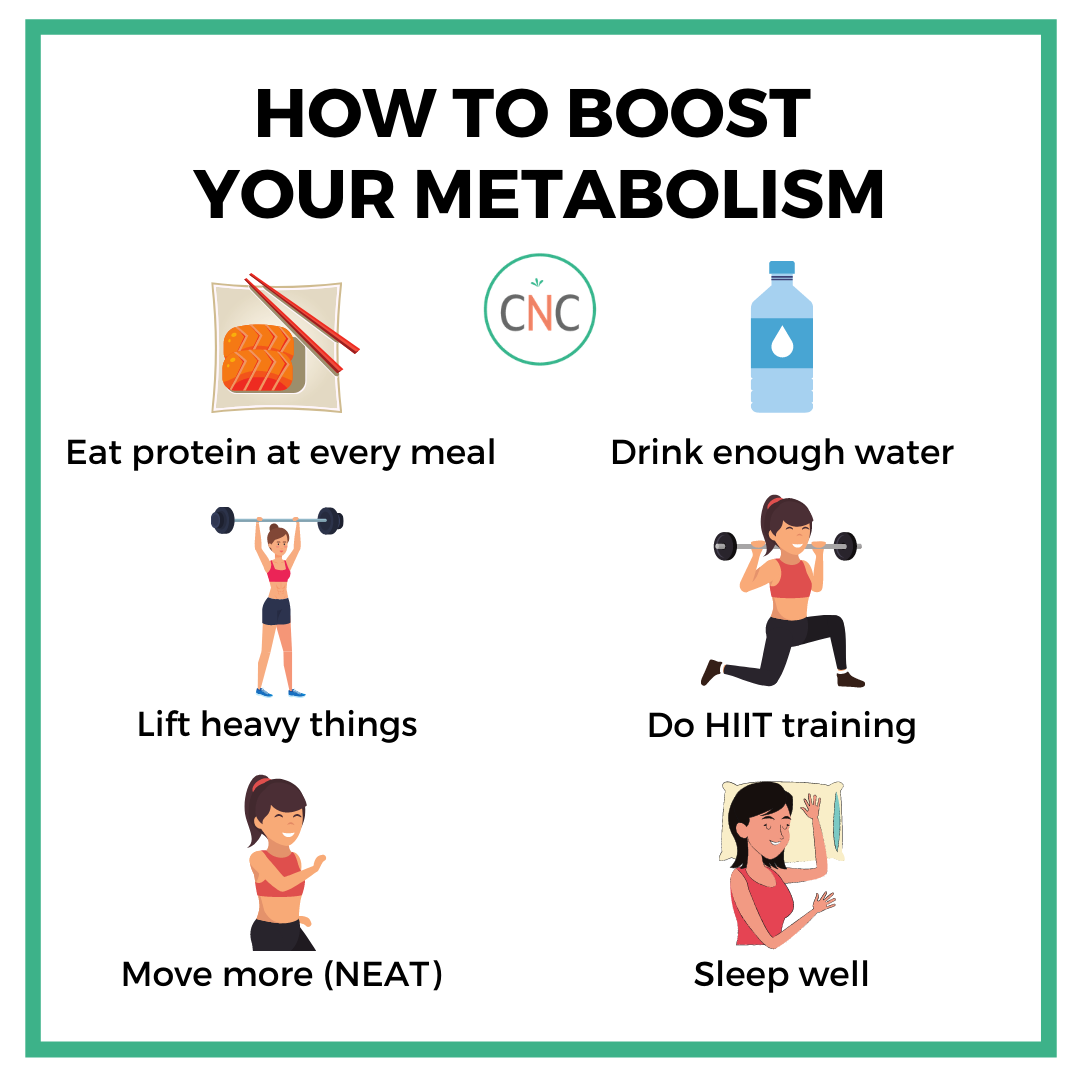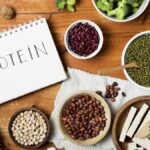Tips and Ideas on How to Increase Your Metabolism
Getting to know how to increase your metabolism gives way to unleashing your full body potentials. Simply put, metabolism is the amount of energy or calories our bodies require to function each day.
The faster your metabolism, the more calories or energy you burn in your daily activities. When this process of energy production, storage, and transmission is out of balance, the body is prone to metabolic disorders, which can lead to health problems.
Diabetes is a classic example of the body’s inability to metabolize blood sugar properly.
Have you ever wondered how some people seem to effortlessly maintain a healthy weight, while others struggle with their metabolism? The secret lies in understanding and optimizing your metabolism.
Your metabolism, often referred to as the body’s engine, determines how efficiently you burn calories and utilize energy. While genetics play a role, there are various lifestyle factors and habits that can influence and rev up your metabolism.
In this article, we will explore effective strategies and lifestyle changes on how to increase your metabolism and unlock your body’s full potential.
“Maintaining a healthy metabolism is very important in living a normal life,” says Colleen Arultz, health and fitness manager at Piedmont Newnan Hospital. “Exercise and strength training play an important role in boosting metabolism and losing weight, especially as we age.”
Arlutz said men’s metabolism is typically about 10 to 15 percent faster than women’s, mainly because men have more muscle mass. So, unfortunately, women have to put in a little more effort to get the same results.
Alrutz shares five tips for boosting your metabolism.
1. Exercise more: Add interval training to your cardio routine to burn more calories in less time. For example, run for 1 minute and then walk for 2 minutes. Repeat this pattern for 20-30 minutes.
2. Strength training: Adding muscle mass to your body will allow you to burn more calories at rest. Be sure to choose a full-body strength program.
3. Do not skip meals, especially breakfast. You have to keep the furnace burning, and you burn calories when you actually digest food.
4. Eat foods that burn fat: Fat-burning ingredients such as protein, chili peppers, and green tea have been shown to boost metabolism. Get some form of these foods, especially protein, at every meal. Protein is especially important.
Although it requires more calories for digestion than other foods, it also helps your body build lean muscle tissue that burns fat.
5. I sleep well every night: Studies show that sleep deprivation impairs activity in the frontal lobe of the brain, which can affect impulse control and decision-making ability.
Insights on How to Increase Your Metabolism
Build Lean Muscle Mass: One surefire way to kickstart your metabolism is to increase your lean muscle mass. Muscles are metabolically active tissues that burn more calories even at rest. Engage in strength training exercises such as weightlifting or bodyweight exercises to build and maintain muscle.

Aim for two to three strength training sessions per week, targeting different muscle groups. As you build muscle, your metabolism naturally speeds up, helping you burn more calories throughout the day.
Don’t Skip Breakfast: Fueling your body with a nutritious breakfast is vital to jumpstart your metabolism in the morning. Studies have shown that those who eat breakfast have a higher resting metabolic rate compared to breakfast skippers.
Include a balance of protein, whole grains, and healthy fats in your breakfast to provide sustained energy and optimize your metabolism. Consider options like Greek yogurt with berries and granola or scrambled eggs with whole-grain toast and avocado.
Stay Hydrated: Hydration is not only essential for overall health but also plays a role in maintaining a healthy metabolism. Drinking an adequate amount of water throughout the day supports the efficient functioning of your metabolic processes.
Research suggests that drinking water can temporarily boost your metabolism by up to 30%. Make it a habit to carry a water bottle with you and sip on water regularly to stay hydrated and rev up your metabolism.
Get Moving: Physical activity is a powerful tool in increasing your metabolism. Engage in regular aerobic exercises such as walking, jogging, swimming, or cycling to elevate your heart rate and burn calories. Aim for at least 150 minutes of moderate-intensity aerobic activity or 75 minutes of vigorous activity per week.
Additionally, incorporate movement throughout the day by taking breaks to stretch, walk, or use the stairs instead of the elevator. The more active you are, the more you can boost your metabolism.
Spice Up Your Meals: Adding a little spice to your meals can have a big impact on your metabolism. Certain spices like cayenne pepper, turmeric, and ginger contain compounds that can temporarily increase your metabolic rate.
Incorporate these spices into your dishes to not only add flavor but also give your metabolism a natural kick. Sprinkle cayenne pepper on roasted vegetables or add turmeric and ginger to a stir-fry or smoothie for a metabolism-boosting twist.
Prioritize Protein: Consuming an adequate amount of protein is crucial for maintaining and increasing your metabolism. Protein requires more energy to digest and metabolize compared to carbohydrates or fats, leading to a higher calorie burn.
Include lean sources of protein in your meals and snacks, such as chicken, fish, tofu, Greek yogurt, or legumes. Aim for a palm-sized portion of protein with each meal to support your metabolism and promote feelings of fullness.
Get Quality Sleep: Quality sleep is often overlooked but plays a significant role in optimizing your metabolism. Lack of sleep can disrupt your hormones, leading to imbalances that affect your metabolism and appetite regulation.
Aim for seven to eight hours of uninterrupted sleep each night. Establish a bedtime routine, create a sleep-friendly environment, and prioritize relaxation techniques to improve the quality and duration of your sleep.
Manage Stress: Chronic stress can negatively impact your metabolism and overall well-being. When you’re stressed, your body releases cortisol, a hormone that can slow down your metabolism and promote fat storage.
Find healthy ways to manage stress, such as practicing mindfulness meditation, deep breathing exercises, or engaging in activities that bring you joy. By managing stress effectively, you can support a healthy metabolism and maintain balance in your body.
Stay Consistent: Consistency is key when it comes to optimizing your metabolism. Implementing healthy habits into your daily routine and sticking to them long-term is crucial for sustainable results.
Make gradual changes and create a lifestyle that supports a healthy metabolism. Remember that small, consistent efforts compound over time, leading to significant improvements in your overall metabolic health.
SEE ALSO: Causes of Hypertension in Young Adults
Conclusion
Increasing your metabolism is within your reach by adopting these evidence-based strategies and making positive lifestyle changes.
By incorporating strength training, eating a balanced breakfast, staying hydrated, engaging in regular physical activity, spicing up your meals, prioritizing protein, getting quality sleep, managing stress, and maintaining consistency, you can rev up your metabolism and unleash the power within.
Empower yourself to take control of your metabolism and achieve your health and weight loss goals with confidence and determination.
SEE MORE BLOG POSTS BELOW
Worst Foods for Erectile Dysfunction
How To Manage High Cholesterol
How To Treat Heartburn Naturally

A graduate of Computer Science and Information Management Technology. Diploma – Caregiving, Certificates – Dementia and Diabetes Awareness and Management. A researcher, blogger, songwriter, singer and acoustic guitarist. Born in an environment where natural talents such as healing are imparted at our natural birth. This natural talents of healing is the result of our genetic inheritance and the training from family environment.























